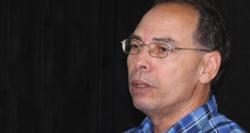Recommendations
Recent events in Egypt, Libya, and Tunisia show both the necessity for change in Morocco and the risks. Dramatic change can come about suddenly, but even a change in the regime may not necessarily bring about stability and better governance. Democratic forces must be strong and prepared as they push for reform in order to ensure that any resulting changes favor the cause of reform.
With a wave of democratization sweeping north Africa, the political reform process within Morocco seems too limited. If the Moroccan government does not engage in comprehensive reform in a dramatic way, it risks threats to its position and power. Reactivating reform measures would increase the legitimacy of the state, and as a result, consolidate the social and political stability of the country, and reinforce the state’s negotiating power in the diplomatic sphere with regard to the Western Sahara conflict and other strategic issues.
The following steps are examples of reform measures that should be enacted to advance democratization in Morocco:
- The prime minister should be elected by universal suffrage and be officially referred to as the “head of government,” in order to counterbalance the tradition of monarchical authoritarianism and hegemony.
- Islamic organizations rejecting the use of force should be recognized as legitimate political parties and should be protected from police harassment.
- The judiciary should be reformed to end corruption and a lack of independence from the executive.
- The power of the security services and the jurisdiction of the Ministry of Interior should be curtailed.
Politics is only part of the struggle. To stay ahead of demands for change, dramatic legal reform is also necessary in Morocco. Possible changes include:
- Media laws should be reformed so that broadcast media are free from the current severe level of state control.
- The electoral system should be reformed to prevent elites and business leaders from being elected through “vote buying.” The most effective measure in this regard would be the transformation of Morocco into a single district. This would limit drastically the use of dirty money by local elites and political entrepreneurs. It would also help bring about a national elite that can stand up to the monarchical autocracy which dominates the central government.
- Criminal law should be reformed so that torture is banned and the 2003 anti-terrorism laws are abrogated.
- Private investment laws should be reformed in a way that enhances equal opportunities for all investors including those who are not favored by “economic Makhzen.”
International pro-democracy and human rights ngOs would be more effective if they succeeded in persuading their governments to decouple eco- nomic and strategic interests from democracy promotion. If human rights were seen as an end in themselves and not as a rhetorical tool to be used diplomatically against hostile states, the rela- tionship between the West and the people of the MenA region could improve.
In addition, by focusing the defense of human rights on the most sensitive political and civil rights (free- dom of press, freedom of expression, freedom of association, freedom from torture), Western countries, pro-human rights NGOs, and pro-democracy international bodies could prove particularly



